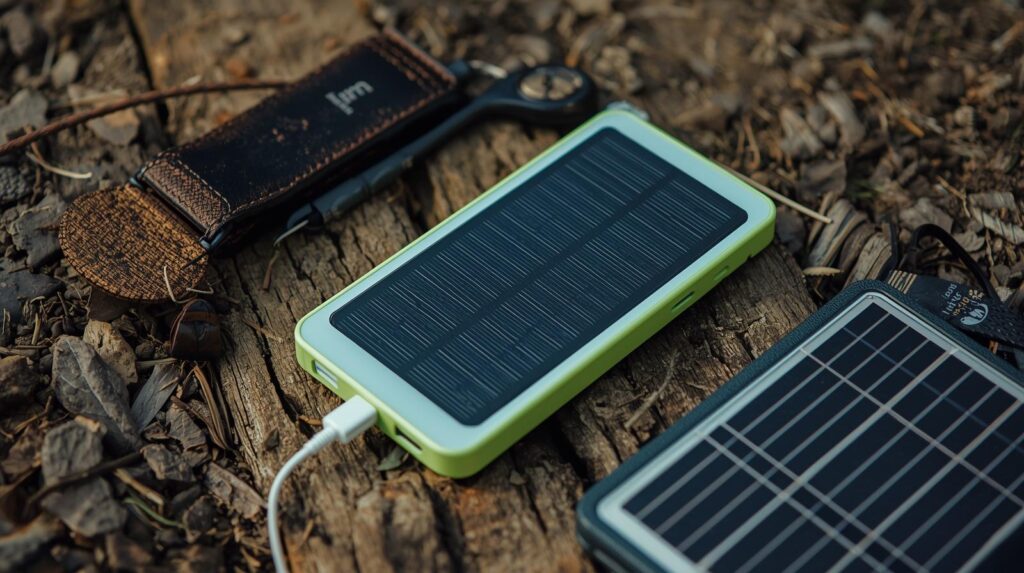In today’s fast-paced, technology-driven world, staying connected is more important than ever. As we increasingly rely on our electronic devices, the demand for sustainable and efficient charging solutions has never been greater. Enter solar power banks—portable, eco-friendly chargers that harness the sun’s energy to power your devices.
This article will delve into the intricacies of solar power banks, exploring their benefits, limitations, and the future potential they hold for both individual consumers and businesses.
Solar power banks are portable devices equipped with solar panels that convert sunlight into electrical energy. This energy is then stored in an internal battery, allowing users to charge their electronic devices, such as smartphones, tablets, and laptops, on the go. The technology behind solar power banks is simple yet effective, making it an attractive option for eco-conscious consumers and businesses alike.
How Do Solar Power Banks Work?
At the core of every solar power bank is a photovoltaic (PV) cell, which converts sunlight into electricity. The energy generated by the PV cell is stored in a rechargeable battery within the power bank. When you connect a device to the power bank, the stored energy is transferred to the device, providing a convenient and sustainable charging solution.
Benefits of Solar Power Banks
Solar power banks offer several advantages over traditional charging methods, making them an appealing choice for both consumers and businesses.
Eco-Friendly Charging
One of the most significant benefits of solar power banks is their environmentally friendly nature. By harnessing the power of the sun, solar chargers reduce reliance on fossil fuels, decreasing carbon emissions and promoting a cleaner, greener planet. This aligns with global sustainability goals and helps businesses meet corporate social responsibility objectives.
Portability and Convenience
Solar power banks are designed for portability, allowing users to charge their devices anywhere, anytime. This makes them ideal for outdoor enthusiasts, travelers, and those in remote locations without access to electrical outlets. For businesses, offering solar chargers can enhance customer experience and demonstrate a commitment to sustainability.
Cost Savings
While the initial investment in a solar power bank may be higher than traditional chargers, the long-term cost savings can be significant. By utilizing free solar energy, users can reduce their electricity bills and decrease dependency on traditional power sources. For businesses, this can translate into lower operational costs and increased profitability.

Limitations of Solar Power Banks
Despite their many advantages, solar power banks do have some limitations that users should be aware of.
Charging Speed
Solar power banks generally charge devices more slowly than traditional chargers. The charging speed depends on several factors, including the size of the solar panel, the capacity of the internal battery, and the intensity of sunlight. On cloudy days or in shaded areas, charging times may be longer, which can be inconvenient for users in need of a quick power boost.
Capacity Constraints
The capacity of a solar power bank’s internal battery determines how many devices it can charge and how long it will take to charge them fully. Smaller power banks may not have the capacity to charge larger devices, such as laptops, and may require frequent recharging themselves. This can be a drawback for businesses that rely on high-capacity devices.
Weather Dependency
Solar power banks rely on sunlight to generate electricity, making them less effective in areas with limited sun exposure or during inclement weather conditions. For users in regions with frequent rain or cloud cover, this can be a significant limitation.
The Future of Solar Power Banks
Despite these limitations, the future of solar power banks looks promising. As technology continues to advance, we can expect to see improvements in efficiency, capacity, and charging speed. Innovations in solar panel technology and battery storage will likely lead to more powerful and versatile solar chargers, making them an increasingly viable option for a wide range of applications.
Integration with Other Technologies
One exciting development in the realm of solar power banks is their potential integration with other emerging technologies. For example, advancements in the Internet of Things (IoT) could enable solar chargers to communicate with smart devices, optimizing energy usage and enhancing the overall user experience. This could open up new possibilities for businesses looking to leverage technology to drive innovation and growth.
Expanded Use Cases
As solar power banks become more efficient and affordable, their use cases will likely expand beyond personal electronics. In the future, we may see solar chargers powering a variety of devices, from electric vehicles to home appliances, further reducing our reliance on traditional energy sources.
Conclusion
Solar power banks represent a significant step forward in the quest for sustainable energy solutions. By providing an eco-friendly, portable, and cost-effective charging option, they offer numerous benefits to both consumers and businesses. While there are limitations to consider, ongoing advancements in technology promise to enhance the functionality and appeal of solar chargers.
For Chief Technology Officers, Business Strategists, and Innovation Managers, understanding the potential of solar power banks is essential for staying ahead of technological trends and integrating sustainable practices into business operations. By embracing this innovative technology, organizations can enhance their competitive edge and contribute to a more sustainable future.
In conclusion, solar power banks are more than just a convenient charging solution—they are a testament to the power of innovation and a step toward a greener, more sustainable world. As we continue to explore the potential of solar energy, the possibilities are limitless.




